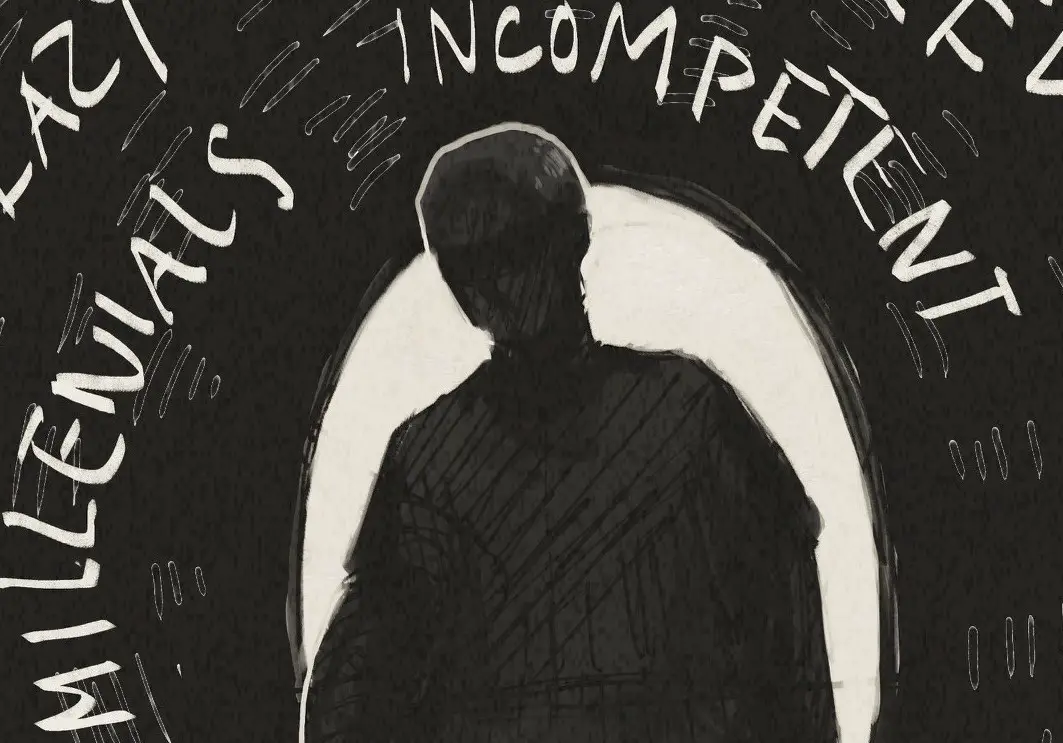You’ve probably heard of mansplaining, and you might have even had the displeasure of experiencing the phenomenon for yourself. But, on par with mansplaining in its insidiousness but far more covert is adultsplaining, a parallel concept that occurs when adults speaking belittlingly to youth who happen to know more about whatever subject is in question. Adultsplaining, like mansplaining, deals with a struggle of inequality — but a very different kind of struggle.
When someone adultsplains, they firmly believe that they know what’s right based solely on the fact that, as an adult, they’re better and wiser than you. And though they’re often wrong, they feel the need to explain everything to you anyway. In our elders’ defense, this phenomenon has always occurred; younger people have always had to suffer through the pontifications of their superiors.
However, because of the accelerated rate of change that technology has afforded us, the problem has been recently exacerbated. Nowadays, older people simply lose touch more quickly. Hence, adultsplaining.
How to Spot a Splainer
An adultsplainer could be a middle-aged woman who doesn’t quite grasp how difficult paying for college is nowadays; she likely thinks that working part-time will guarantee a debt-free graduation. It could be a man who explains to a gay teenager that homosexuality is just a phase, one they’ll move past eventually. It could even be someone who doesn’t believe in mental illness counseling an anxious kid to exercise, put down their phone and wait for the relief to flood in.
Importantly, adultsplaining has very little to do with discipline. If, as a child, you misbehaved or endangered yourself, any responsible adult would be right to explain to you what you did wrong. Parenting or even just intelligent guardianship will always involve a degree of explanation, because as a kid, from time to time, you need someone to explain concepts you’d be unable to grasp on your own.
However, adultsplaining doesn’t hold as its motivation mentorship, or really even the improvement of the child. Instead, its impetus is rooted in the adult’s insecurity, a far less benevolent motivation than the enrichment of a child and one hardly destined to lead anywhere good.
The parenting website Cure Joy maintains that telling children how life is, rather than encouraging them to explore it, is a hallmark of bad parenting. Doing so not only fails to equip the child with the tools they need to succeed in life, but it can lower their self-esteem and make them feel unimportant. The same line of thinking applies to students, who arguably need even less pedagogy and more applied independence. At a certain point, handholding and coddling become not only unhelpful to young adults, they become dangerous, even stunting.
So Why Adultsplain?
In much the same it’s harder than ever to be a young person, it’s also harder than ever to be an adult, especially a parent. Information moves more quickly, lifestyle paradigms shift more commonly and the learning curve only grows more steeply.
In just a few years, you go from pushing the boundaries to just trying to keep up with them, all while you’re haunted by the knowledge that whatever you’re experiencing now will only continue to worsen, at quicker and quicker rates, until you’re eventually completely dislocated from modern life.
An understandable, if discouraging response to such existential dread is insecurity. According to neuropsychologist Dr. Rhonda Freeman, two prominent signs of self-doubt are an air of superiority and the tendency to “disagree regardless of accuracy,” both of which are signpost traits of adultsplaining. So rather than arrogance, most over-explaining adults are simply trying to mask their own self-consciousness.
On a more basic level, the way we gather our information has evolved (or devolved) in recent years, and some adults have difficulty finding up-to-date, verifiable material. More so today than ever before, you can find something online to back up almost any notion you have, which makes discerning the truth harder than it used to be.
For adults less savvy to the ways of the web, adultsplaining can be less a symptom of condescension and more a reflection of outdated researching tools. And when an adultsplainer is wrong, but they have a website saying they’re right, it’s all the more tempting for them to dig their heels in, pull the age card and force you to listen.
So what’s the solution? First, it’s important to remember who the adults are in the situation: them. You’re not responsible for suffering their delusions, babying them or being their life coach. You have your own stuff going on, so look out for yourself first. At the same time, a little bit of empathy in an adultsplaining situation will go a long way, for the both of you in fact.
If the end goal for both parties is growth, cooperation is the key, not antagonism. Understand how difficult it must be to be an adult in a world where memes are rapidly becoming an entirely new language. Then, express as tactfully as possible that you’re feeling condescended to, and that if they really wanted to help, they would hear your feedback and respond by changing their approach. From there, they either change their style or they show their cards. If it’s the latter, conversation over.









